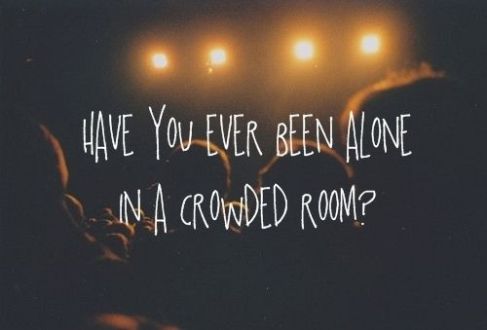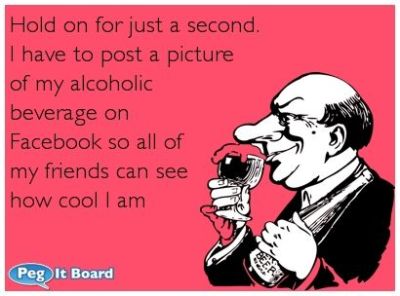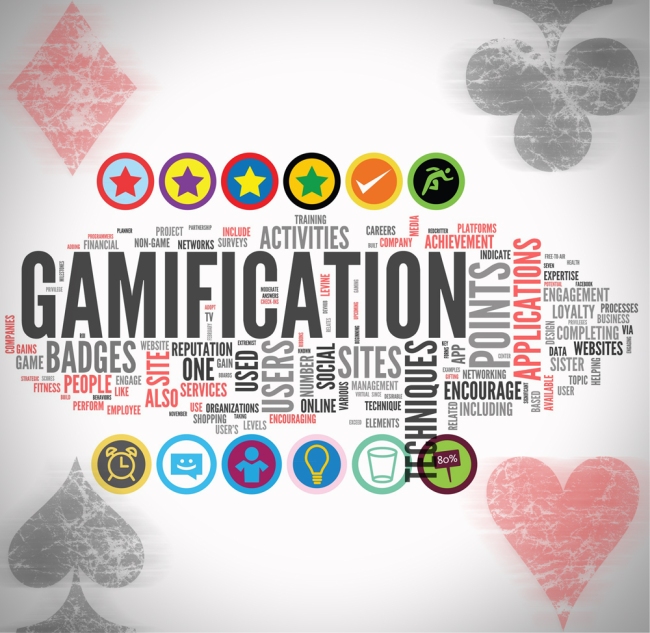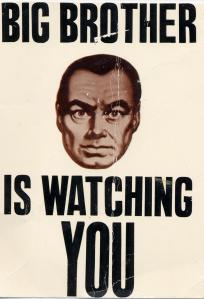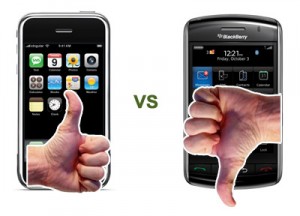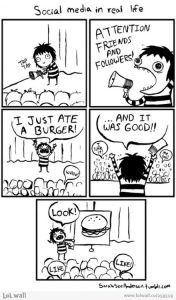… maybe this was because everyone was on their phones! “People today are more connected to one another than ever before in human history, thanks to Internet-based social networking sites and text messaging. But they’re also more lonely and distant from one another in their unplugged lives” says Massachusetts Institute of Technology social psychologist, Sherry Turkle (Sherry Turkle, “Alone in the Crowd”). Social media helps us stay connected to hundreds of friends, business associates, and acquaintances. It has widened our social circle, increased our support network and made it easier to organize social outings (duh). But has it brought us emotional stability? Is it better to have 340 “fake” facebook friends or 3-4 true best friends? Social media is slowly eroding our ability to form close, ever lasting bonds with others because its communication methods are superficial and lacking in intimacy. Ultimately, we are more alone with 340 friends than we are with just a few. This causes apprehension between the ways in which we connect and become intimate with our friends and family. Therefore, the extended use of social media and connection that occurs today increases feelings of loneliness, feelings of unimportance, and the desire to always be in contact.
The lack of intimacy and face-to-face personal contact increases feelings of loneliness. Many teenagers and adults “hide behind” a computer screen, which distances the feeling of intimacy, in order to be able to speak their mind freely, don’t lie – I know you’ve all done it once or twice, I definitely have. Because there is a boundary between you and the person you are talking to, it not only gives you the courage to say what you want, but also generates a feeling of emotional distance. In reality, you are alone with your computer – a piece of metal, thus increasing feelings of loneliness. The reason many teens would rather speak though a screen is to have more control over the conversation. They risk creating true bonds with others because they do not want to be put in a position where they must think and speak on the spot, instead they sit at their computer thinking and re reading what they are about to say, often making the conversation less intimate and sincere. Imagine talking to your crush over Facebook Chat, how many times would you re-read and re-type and re-think each response then you call in your best friend to read it once more. All you are doing is trying to figure out if you should send “hey what’s up” or “hey how are you doing” or “hey how was your day?”… don’t be shy, we are all victims of it. It can provide the illusion of companionship without the demands of intimacy. Even though one may have many friends on a social networking website, relationships formed and maintained through a screen are not deemed as true bonds. This is the difference between having many fake Facebook friends, and having a best friend who you can share everything in the world with.
Sitting at a family dinner table with the people around you on their Smartphones increases feelings of unimportance. When someone is text messaging someone else in the presence of other people, it makes the people physically around them feel less valuable and less important. It seems as if there is something better and more interesting to talk about than whomever is sitting in front of them. This can occur not only within the family, but at school and with friends as well. Many teachers have the rule of no cell phones or laptops in class. This rule is in place because, not only does it make the professor feel less important when students text instead of being engaged in the lesson, but it is also offensive and rude. With all the technological advancements and social networking tools in today’s society, this happens too often. As a society we must do a better job of creating and enforcing social norms to combat this effect and engage with the physical people around us instead of over a simulated network.
In today’s society the ability to be alone, enjoying your own company, seems to be on the decline. People have a strong desire to go online and talk to others whenever they are alone. It is important to learn to enjoy some “alone time”, time for personal reflection and relaxation. In the end Social Media is here to stay and, with its many benefits, we wouldn’t want it any other way. But we must learn to use it wisely. We must make time for face-to-face contact, make eye contact instead of glancing at a smartphone, turn off our electronics and truly enjoy the person/people we are with. Ultimately we must also learn to enjoy being alone, in order to become less lonely.

